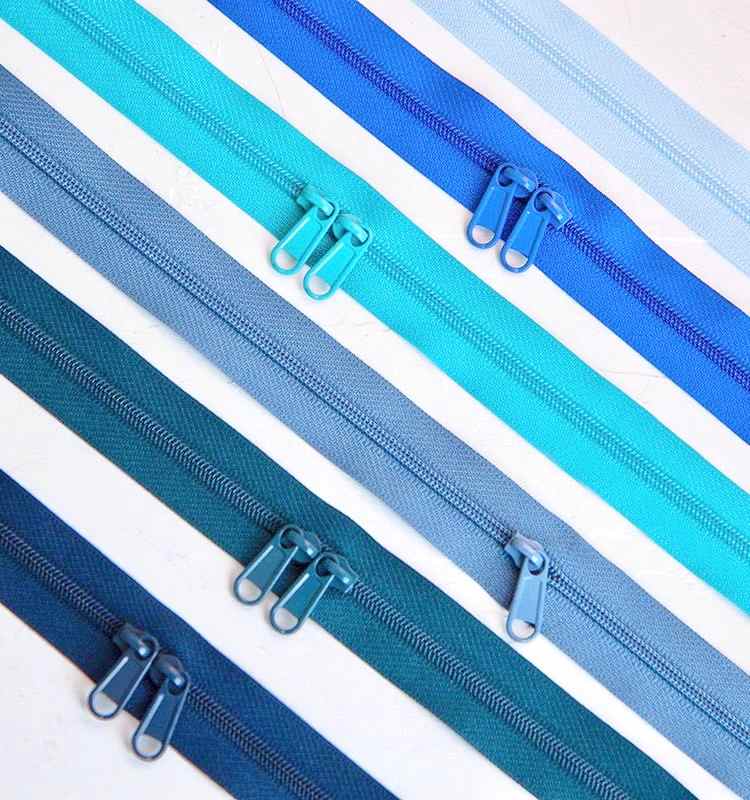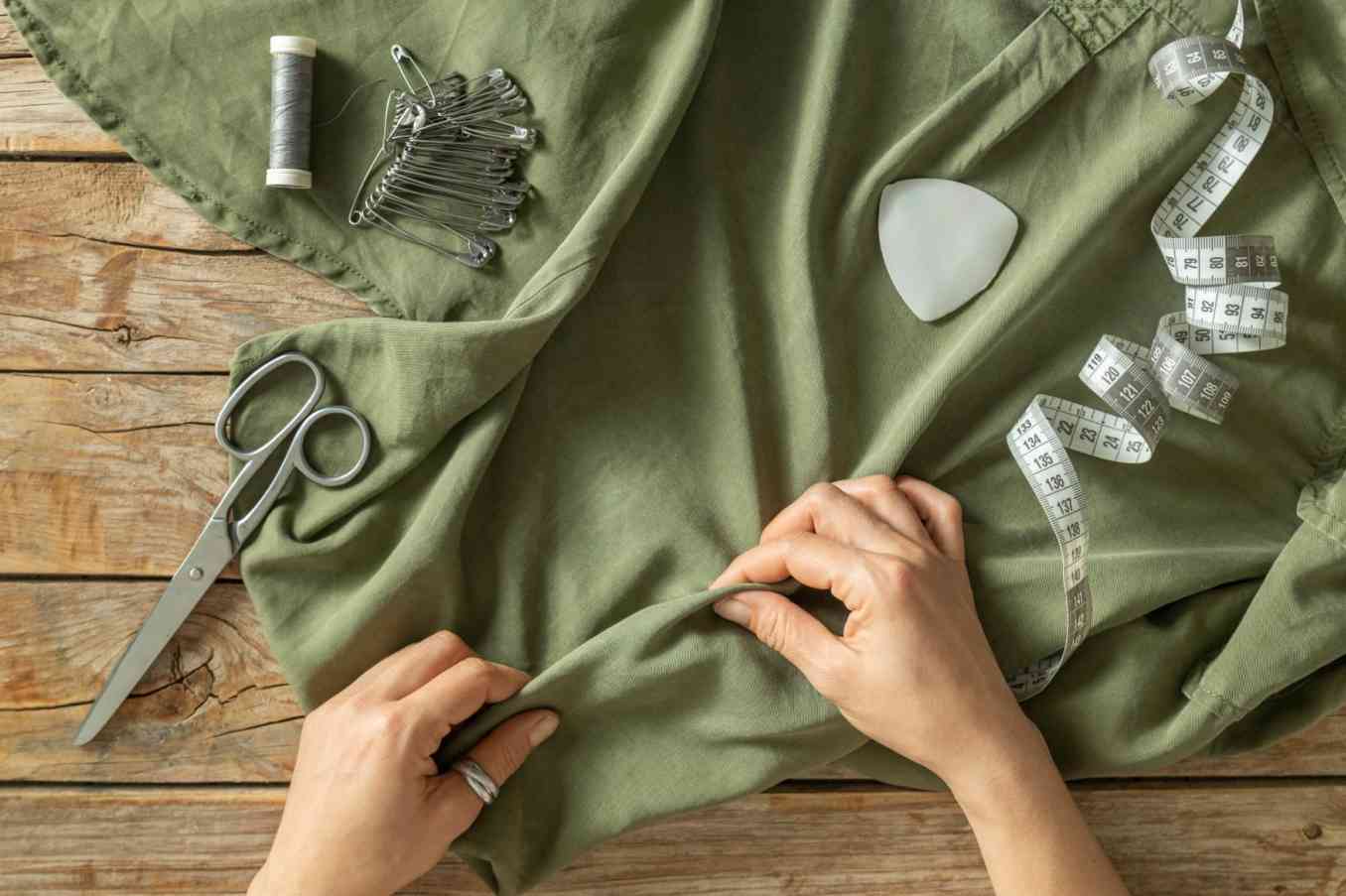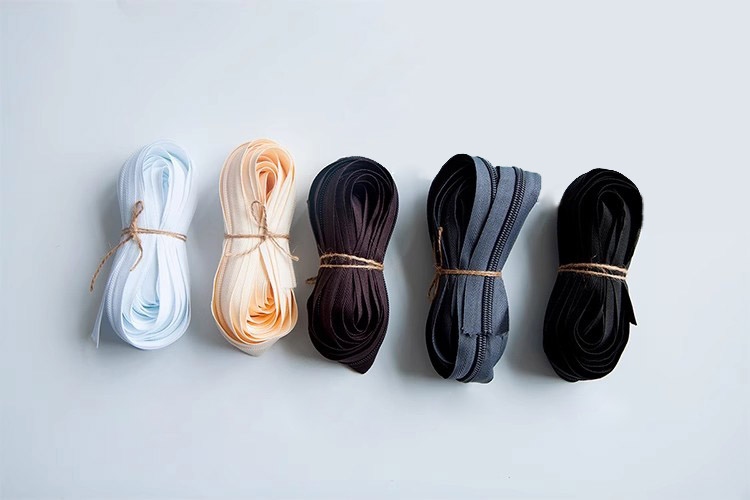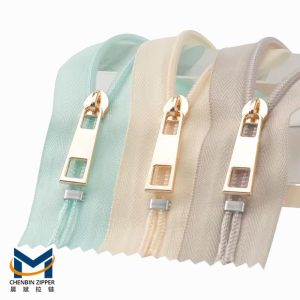Pourquoi les fermetures éclair sont-elles disponibles en tailles standard?
Les fermetures éclair sont fabriquées en tailles définies pour gagner du temps et s'adapter à de nombreux projets. Fermetures à glissière continueou à longue chaîne, viennent en grands rouleaux sans extrémités ou coulissants. Vous pouvez les couper pour correspondre à ce sur quoi vous travaillez, ils sont donc géniaux pour toutes sortes de choses. Cela facilite la production et le suivi du stock, vous permettant de les couper à la bonne longueur.
Pourquoi les fermetures éclair sont-elles souvent trop longues?
Lorsque vous attrapez des fermetures éclair pour la couture ou l’artisanat, elles sont généralement plus longues que vous n’en avez besoin. C’est délibérément, en particulier pour les fermetures éclair en bobine de nylon, qui sont super faciles à couper. Certaines personnes achètent toujours des fermetures éclair en nylon plus longues car elles peuvent les raccourcir ou ajouter des onglets. Avoir une longueur supplémentaire vous donne de l'espace de basculement et vous évite de faire face à une fermeture à glissière trop courte.
Que se passe-t-il si vous laissez une fermeture éclair trop longtemps?
Garder une fermeture à glissière trop longtemps peut gâcher l'apparence et le fonctionnement de votre projet. Il peut s'amasser, devenir bizarre ou se coincer dans des coutures. Pour des choses comme des sacs ou des oreillers, les extrémités extra-longues semblent désordonnées et rendent plus difficiles à utiliser.
Pouvez-vous couper une fermeture éclair sans la casser?
Oui, surtout les fermetures éclair en nylon. Ils sont doux et pliants, vous pouvez donc les couper sans blesser les dents ou la partie du tissu. Mais vous devez le faire avec prudence pour éviter de vous débarrasser ou de jeter des choses.

Étape par étape: comment couper une fermeture éclair à la bonne longueur
Couper une fermeture à glissière n'est pas grand problème si vous utilisez les bons outils et le prenez lentement. Que ce soit à la main ou à la machine, vous voulez une finition propre.
Comment raccourcir une fermeture éclair à la main de la bonne façon
Outils dont vous aurez besoin
Pour couper une fermeture éclair à la main, saisissez :
- Ruban de mesure
- Marqueur de tissu
- Ciseaux (pas vos tissus fantaisistes)
- Aiguille et fil
- Briquet (pour fermetures éclair en nylon)
Étapes pour couper et finir à la main
- Mesure: Vérifiez de l'arrêt supérieur à l'arrêt inférieur. Marquez où vous voulez que cela se termine.
- Faites un arrêt: coudre à travers les dents à votre marque pour faire un bouchon de fil.
- Coupe: couper 1/2 pouce en dessous de l'arrêt avec de vieux ciseaux (pas vos bons).
- Seal the Edge: Pour les fermetures à glissière en nylon, fondez légèrement l'extrémité coupée avec un briquet pour arrêter de s'effondrer.
Comment raccourcir une fermeture éclair avec une machine à coudre
Se préparer pour la couture à machine
Marquez où va le nouvel arrêt avec la craie ou un stylo lavable. Vérifiez que l’aiguille de votre machine peut gérer l’épaisseur de la fermeture éclair.
Conseils de couture pour une finition solide et ordonnée
Coudre un point en zigzag sur les dents à votre marque, allant en avant et en arrière quelques fois. Cela fait un arrêt fort qui ne s'écroulera pas.

Conseils pour différents types de fermeture éclair: Qu'est-ce qui fonctionne le mieux?
Toutes les fermetures éclair ne sont pas les mêmes. Chaque type a besoin de sa propre façon de couper.
Pouvez-vous couper des fermetures éclair en métal, en plastique ou en nylon de la même manière?
Nope, ils sont différents :
Coupe de dents en métal vs. dents en bobine
Pour les fermetures à glissière métalliques, retirez les dents avec des pinces avant de couper. Ne pas essayer des ciseaux sur des dents en métal, cela les détruira et laissera des bords rugueux. Fermetures à fermeture éclair en nylon sont doux et faciles à couper avec à peine aucun effort.
Fixation des arrêts et réarrangement des coulissants
Pour les fermetures à glissière moulées en métal ou en plastique, ajoutez de nouvelles butées supérieures avec des pinces ou un outil de sertissage après la coupe. Les fermetures à glissière en bobine de nylon sont plus simples car elles sont pliées, de sorte que les curseurs se remettent facilement en place.
Manipulation Séparation vs. Fermeture à fermeture
Les fermetures éclair séparantes, comme dans les vestes, ne devraient pas être coupées du bas - cela les empêche de s'ouvrir tout le long. Tailler à partir du haut et ajouter de nouveaux arrêts. Les fermetures éclair à extrémité fermée, comme dans les sacs, peuvent être coupées à chaque extrémité, mais scellent bien les bords.
Erreurs à éviter en coupant une fermeture éclair
Que ne jamais faire
- Ne pas utiliser vos ciseaux de tissu sur les dents en métal.
- Ne sautez pas faire de nouveaux arrêts après la coupe.
- N'oubliez pas d'étancher les bords de la fermeture à glissière de la bobine en nylon - ils se détruiront.
- Ne forcez pas les curseurs sur des coupes grossières; il peut casser le curseur ou les dents.
Comment arrêter les problèmes de fraigation et de glissage
Fermez l'extrémité coupée avec un briquet ou un peu de vernis à ongles transparent. Testez le curseur avant de le coudre dans votre projet.
CB Zipper : qualité et liberté dans chaque zip
Chez CB Zipper, nous fabriquons des rouleaux de fermeture à glissière continus de haut niveau afin que vous puissiez choisir la longueur parfaite pour n'importe quel projet - pensez aux oreillers, à la literie, aux sacs ou aux sacs.
Qui est Fermeture éclair CB Et qu'offrent-ils ?
HANGZHOU CHENBIN ZIPPER CO., LTD. fabrique et vend des fermetures éclair, des rouleaux bruts à ceux finis. Avec 88 millions de mètres de fermetures éclair à chaîne longue fabriqués chaque année, nous offrons un excellent service et une livraison qui correspond à votre horaire.
Pourquoi choisir CB Zipper pour les fermetures éclair personnalisées ou en vrac?
Nos rouleaux à fermeture éclaire vous donnent des tonnes d'options:
CB Zipper maintient les rouleaux à fermeture éclaire à chaîne longue prêts pour vos grands projets. Que ce soit des vêtements, des sacs à dos, des tentes, des chaussures, des meubles ou même des fermetures à glissière imperméables ou cachées, nous avons tout.
Nous offrons :
- Bobine en nylon: légère et pliable
- Métal: Dur et fiable
- Moulé en résine/plastique: lumineux et amusant
- Invisible: look élégant pour rembourrage ou robes
Pourquoi CB Zipper Products Rock pour les projets de bricolage
Nos fermetures à glissière utilisent du nylon de haute qualité pour la résistance et la fermeture à glissière lisse. Ils facilitent l'artisanat et fonctionnent parfaitement pour des choses comme la literie, les sacs à laver, les sacs à pièces et plus encore.

FAQ
Q: Comment couper une fermeture à glissière par la cour?
R: Mesurer de haut en bas. Marchez-le, cousez un nouvel arrêt là-bas. Couper un demi-pouce en dessous. Fermez les fermetures éclair en bobine de nylon avec la chaleur.
Q: Pouvez-vous couper une fermeture à glissière sans la gâcher?
R: Oui, si vous le faites bien, cousez un arrêt avant de couper et scellez les bords après. Ceci est super important pour les fermetures éclair en bobine de nylon, qui sont plus faciles à réparer.
Q: Comment choisir entre méthodes manuelles ou machines pour raccourcir les fermetures éclair?
R: Allez avec des méthodes manuelles pour des choses délicates ou lorsque vous voulez le contrôle. Utilisez une machine pour la vitesse ou si vous faites un tas de fermetures éclair. Les deux fonctionnent, en fonction de votre projet et de vos matériaux.




